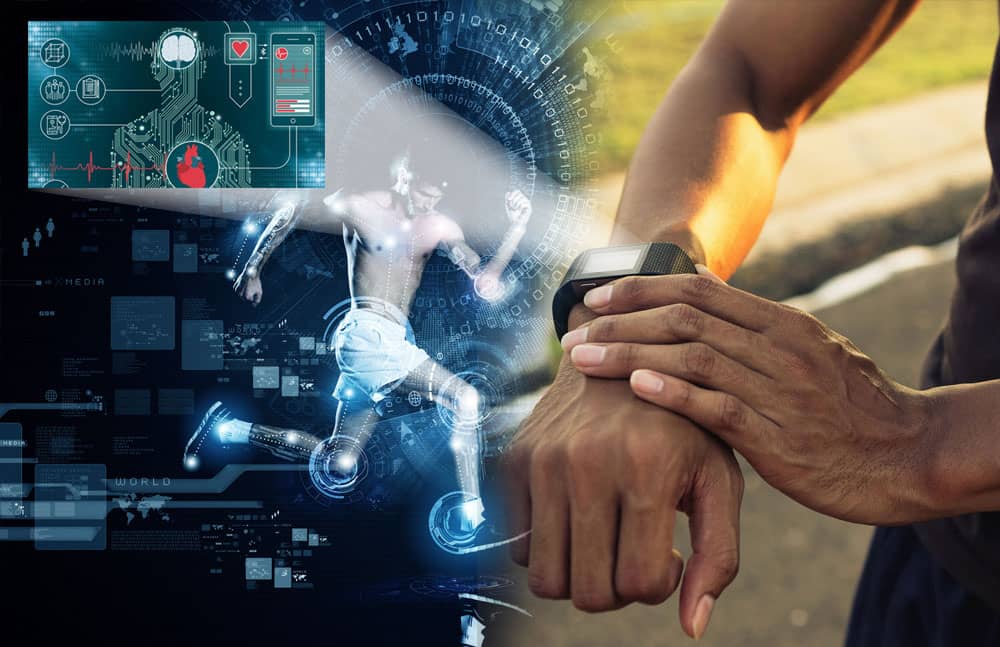The Rise of Wearable Health Devices
The wearable technology market has seen exponential growth in recent years, with devices such as smartwatches, fitness trackers, and health monitors becoming commonplace. These devices are designed to track various health metrics, including heart rate, sleep patterns, and physical activity levels. As consumers become more health-conscious, the demand for wearable tech that provides real-time health data continues to rise.
Wearable health devices not only empower users to take control of their health but also facilitate a proactive approach to wellness. By providing insights into daily habits and health trends, these devices encourage users to make informed decisions about their lifestyle, ultimately leading to improved health outcomes.
Monitoring Chronic Conditions
Wearable technology plays a crucial role in managing chronic conditions such as diabetes, hypertension, and heart disease. Devices equipped with sensors can continuously monitor vital signs and alert users to any abnormalities. For instance, glucose monitors can track blood sugar levels in real-time, allowing diabetics to manage their condition more effectively.
This continuous monitoring not only enhances patient engagement but also provides healthcare professionals with valuable data to tailor treatment plans. As a result, wearable tech is transforming the way chronic conditions are managed, leading to better patient outcomes and reduced healthcare costs.
Enhancing Fitness and Activity Tracking
Fitness trackers have revolutionized the way individuals approach exercise and physical activity. These devices can track steps, calories burned, and even specific workouts, providing users with a comprehensive overview of their fitness journey. By gamifying fitness, wearable tech motivates users to set and achieve personal goals.
Moreover, many fitness trackers offer features such as heart rate monitoring and sleep analysis, allowing users to understand how their physical activity impacts their overall health. This data-driven approach to fitness encourages a more active lifestyle and helps users stay accountable to their health goals.
Sleep Tracking and Its Importance
Sleep is a critical component of overall health, and wearable technology has made it easier to monitor sleep patterns. Devices equipped with sleep tracking capabilities can analyze sleep quality, duration, and cycles, providing users with insights into their sleep habits. Understanding these patterns can help individuals make necessary adjustments to improve their sleep quality.
By prioritizing sleep health, users can enhance their cognitive function, mood, and overall well-being. Wearable tech not only raises awareness about the importance of sleep but also provides actionable data to help users achieve better rest.
Mental Health Monitoring
Wearable technology is increasingly being utilized to monitor mental health. Devices can track physiological indicators of stress, anxiety, and mood changes, providing users with insights into their mental well-being. For example, some wearables can measure heart rate variability, which is often linked to stress levels.
By integrating mental health monitoring into daily routines, users can become more aware of their emotional states and take proactive steps to manage stress. This holistic approach to health emphasizes the connection between physical and mental well-being, making wearable tech a valuable tool for overall health management.
Integration with Telehealth Services
The integration of wearable technology with telehealth services is revolutionizing healthcare delivery. Patients can share real-time health data with healthcare providers, enabling remote monitoring and consultations. This seamless communication enhances patient engagement and allows for timely interventions when necessary.
As telehealth continues to grow in popularity, the role of wearable tech in facilitating remote care becomes increasingly important. This integration not only improves access to healthcare but also empowers patients to take an active role in their health management.
Data Privacy and Security Concerns
As wearable technology collects sensitive health data, concerns about data privacy and security have emerged. Users must be aware of how their data is collected, stored, and shared. Companies must prioritize robust security measures to protect user information and build trust with consumers.
Understanding data privacy policies and the implications of sharing health data is essential for users. As the wearable tech landscape evolves, addressing these concerns will be crucial for the continued adoption of these devices.
The Future of Wearable Health Technology
The future of wearable health technology is promising, with advancements in artificial intelligence, machine learning, and sensor technology. These innovations will lead to more accurate health monitoring and personalized health insights. As technology continues to evolve, we can expect wearable devices to become even more integrated into our daily lives.
Moreover, the potential for wearables to connect with other smart devices and health platforms will create a comprehensive ecosystem for health management. This interconnectedness will empower users to take charge of their health like never before, making wearable tech an indispensable part of personal health management.
| Aspect | Description |
|---|---|
| Definition | Wearable technology refers to electronic devices that can be worn on the body, often incorporating sensors to monitor health metrics. |
| Health Monitoring | Wearables track vital signs such as heart rate, blood pressure, and sleep patterns, providing real-time health data to users. |
| Fitness Tracking | Devices like fitness bands and smartwatches encourage physical activity by tracking steps, calories burned, and exercise routines. |
| Chronic Disease Management | Wearable tech aids in managing chronic conditions by monitoring symptoms and medication adherence, improving patient outcomes. |
| Data Integration | Wearables can sync with mobile apps and health platforms, allowing users to analyze trends and share data with healthcare providers. |
| Preventive Health | By providing insights into health behaviors, wearables promote preventive measures, helping users make informed lifestyle choices. |
| Future Trends | Advancements in AI and machine learning are expected to enhance the capabilities of wearables, offering personalized health recommendations. |



